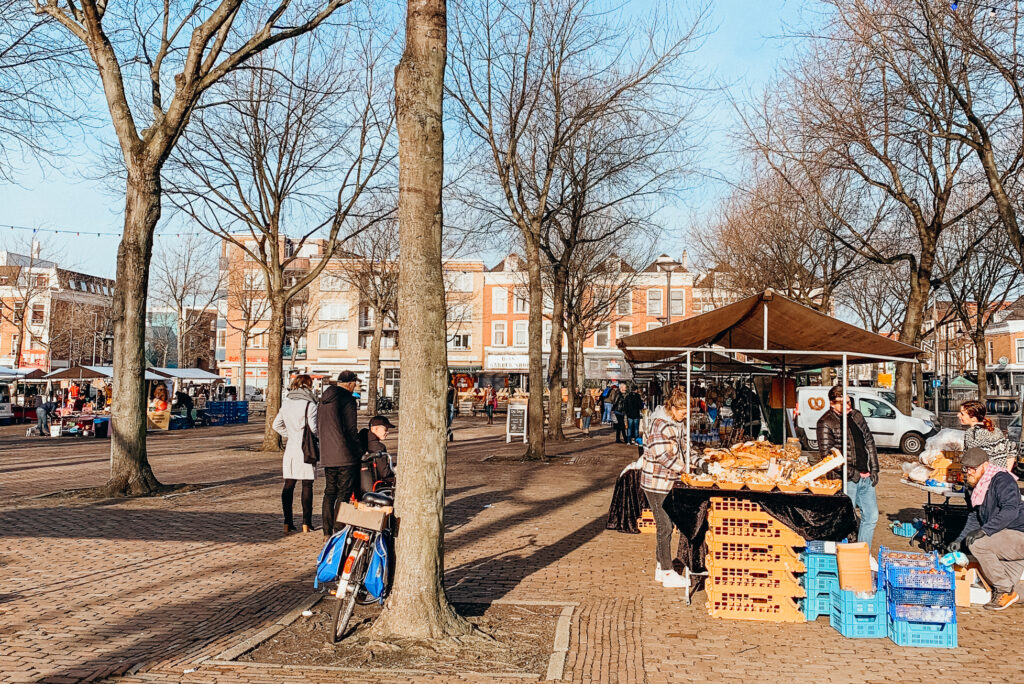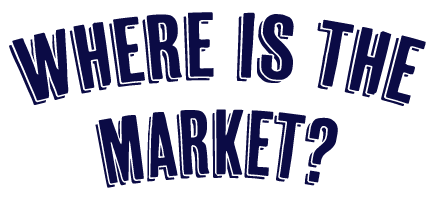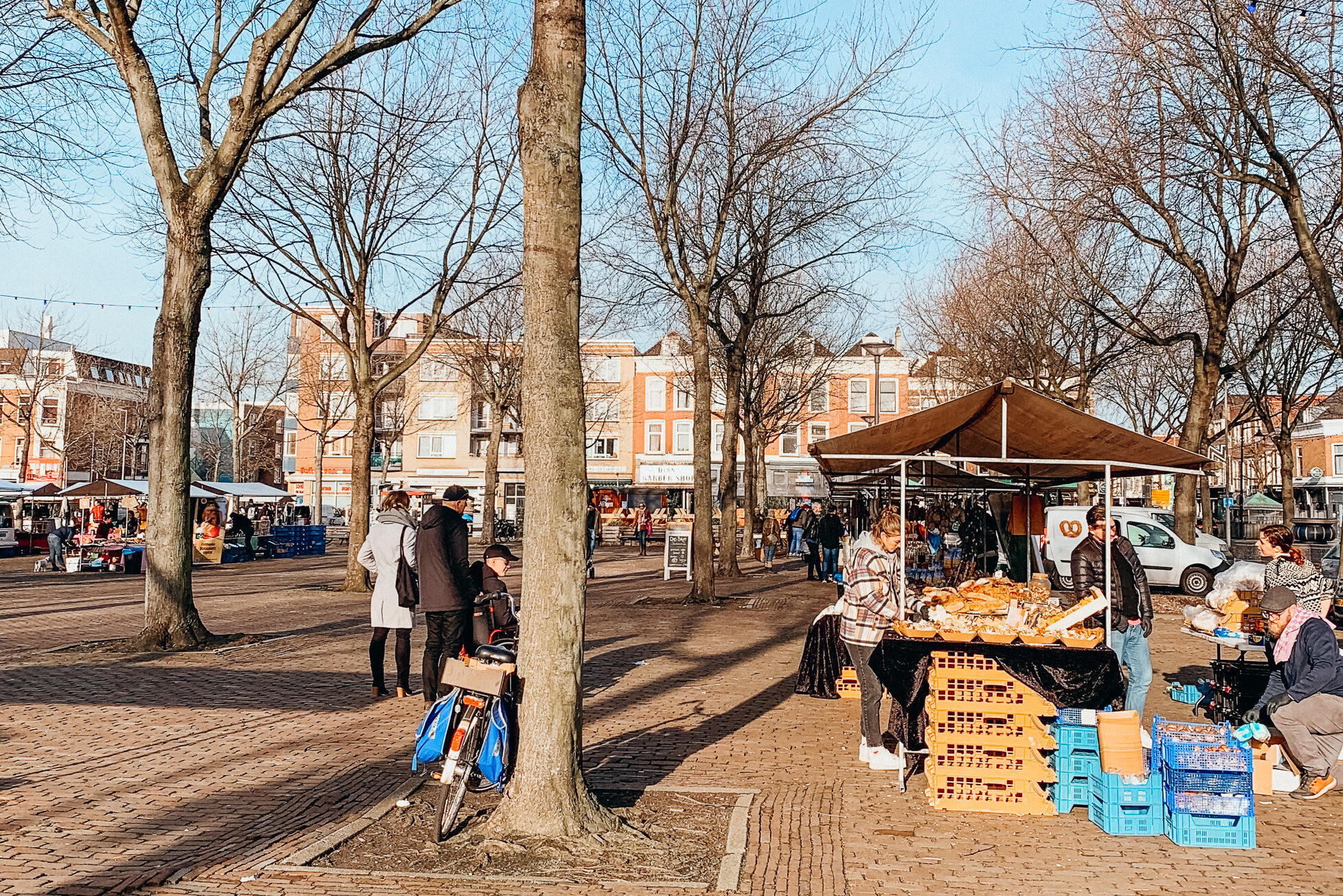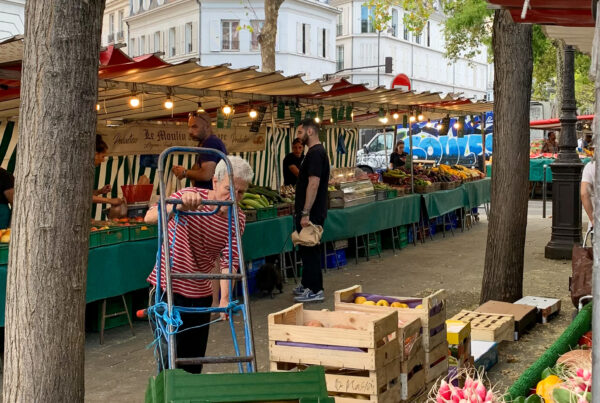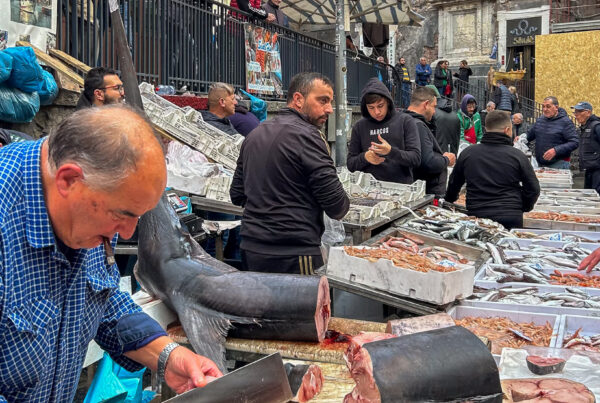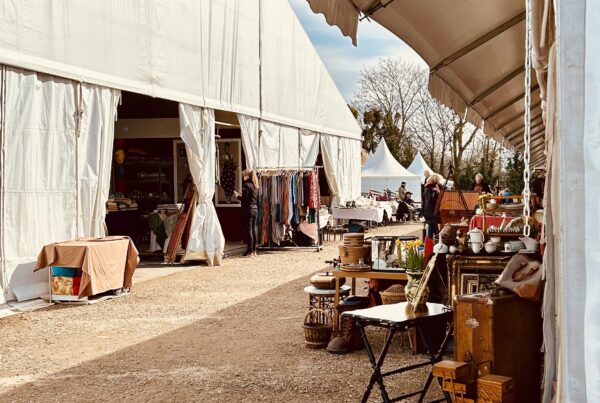How a neighbourhood market in Rotterdam is embracing the farm to table principles in the middle of the city
At the end of February on an unusually spring-like Saturday – especially because just a week before we were skating on the frozen canals – I visited the Rotterdamse Oogst market in Rotterdam-North, a borough of the Netherlands’ second largest city. I had the pleasure of having one of the organisers, Gerda, as my guide. Thanks to her stories I got a small peak into what goes into organising and running an independent market that is still unique in the country.
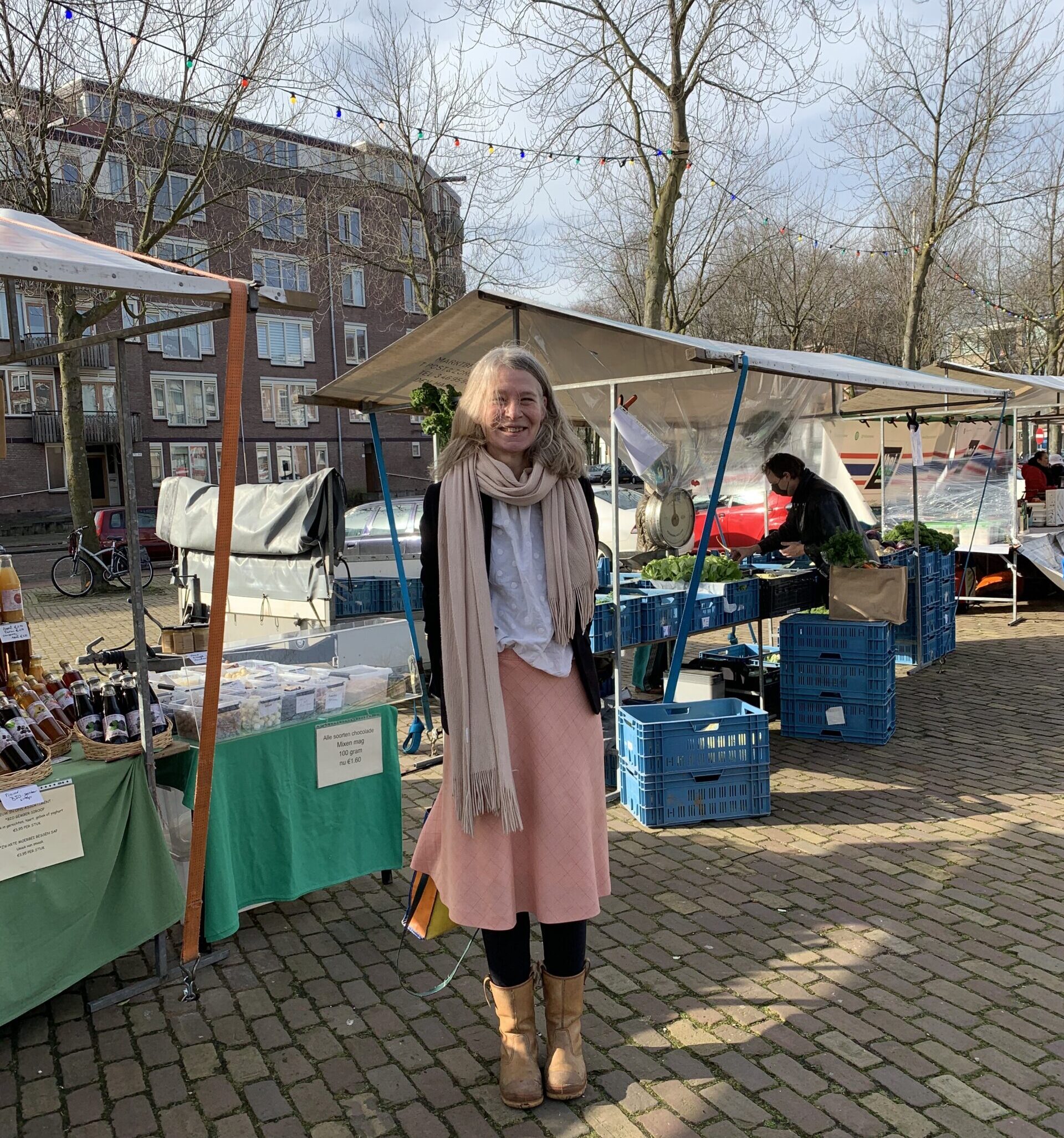
From neighbourhood project to weekly market
Rotterdam holds a special place in my heart as it was the first city I moved to from my hometown in Hungary over 10 years ago. Turns out, just around the same time of my move a group of friends and neighbours in the western part of town were thinking about organizing a market where they could buy fresh produce from local farmers. Unfortunately it was not a possibility back then, as municipal laws would not allow private parties to organise recurring, weekly food markets. Instead, Gerda and her neighbours organised a festival with food stalls, music, performance art, and beyond. While they knew that there is a need for such an event, the success of the first market exceeded their expectations. They repeated the festival several times over the years. Thanks to Gerda’s perseverance and changes to local rules they finally managed to start the Rotterdamse Oogst market at the Noordplein, a square in the heart of Rotterdam-North and never looked back.
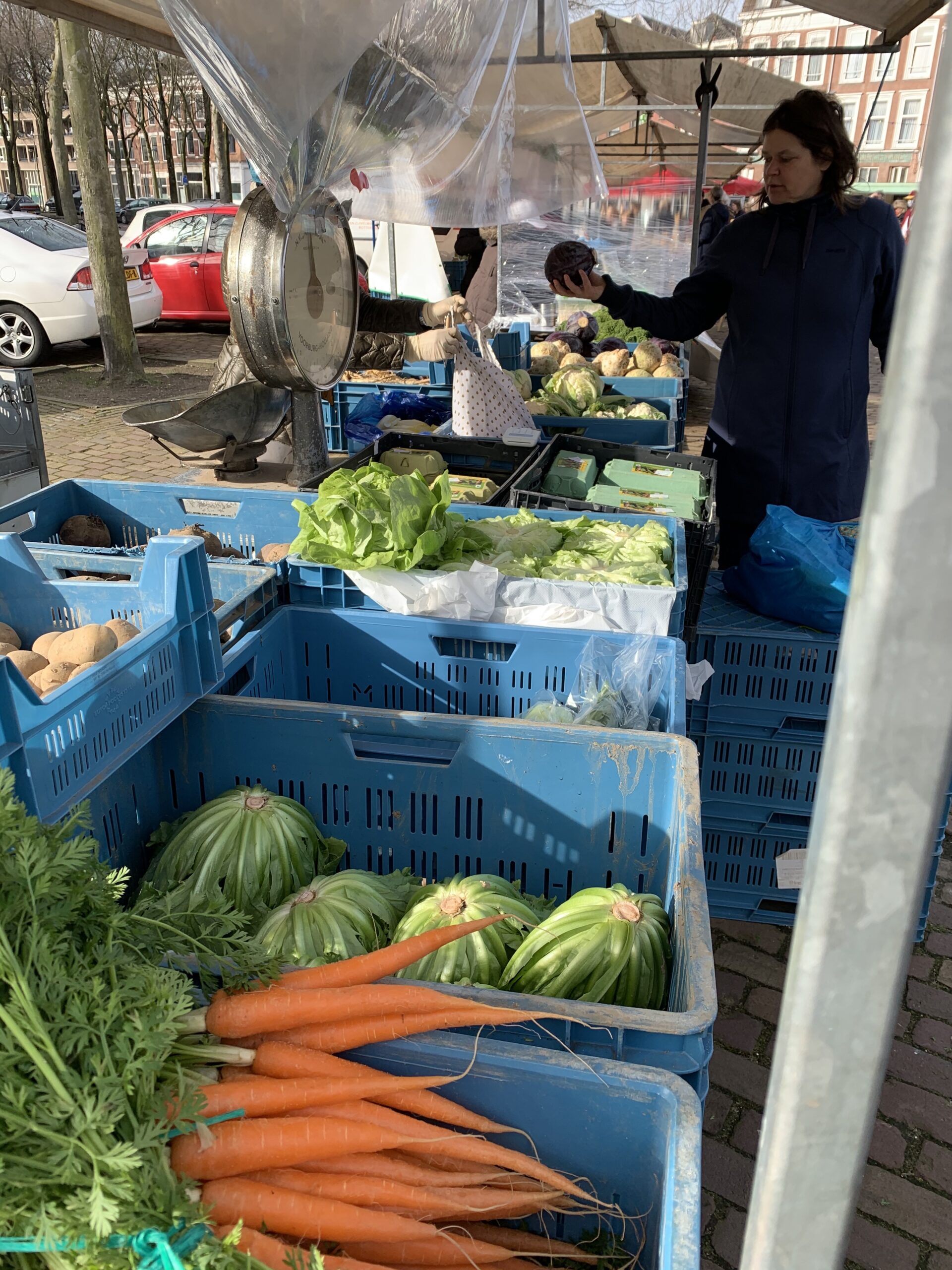
Makers’ Market
Gerda calls the market a makers’ market instead of a farmers’ market for a reason. The mission of the Rotterdamse Oogst market is to shorten the distance between the farmer and the consumer. They have strict criteria for stall holders: the produce has to be grown within a 50 km radius of the city and everything should be seasonal and sustainable. But the Dutch climate limits the availability of seasonal produce during the winter months. In an effort to give market-goers an alternative to supermarkets, market organisers made amendments to the rules. Approved small traders can now sell products that are not always seasonal, cannot be grown in the country or not directly made by the vendors. Hence making it a makers’ market.
But the most important criteria is the most simple one as well: be nice. Be nice to nature, be nice to animals and be nice to people. Although it is not a certified organic market, they ensure that all the vendors grow or source their products in the most ethical way possible.
The life changing market
While walking from one stall to the next with Gerda I heard several stories about the small, but meaningful ways the market changed many of the traders’ lives. There’s Paul who lost his job and decided to join a workshop organised by the market to learn about making sausages. Today he has his own butcher stall.
Then there’s the owner of the Thai food stall who was unsure about opening a restaurant of his own because of all the risks involved so he decided to start a stall at the market instead. He received a lot of guidance from the market organisers to make sure he is using ethically sourced meat and local ingredients as much as possible. Today his stall is probably the only Thai restaurant in the country that works exclusively with local ingredients.
An invitation to Sicily
My visit to the Rotterdamse Oogst market started out with a compliment shouted at me by a lady passing me on her bicycle and ended with an invitation to Sicily. Anna, the vendor of Nino’s Delicacies, specialises in traditional Italian ingredients and sells olive oil made from olives grown in her own olive grove in Sicily. We had a short chat about markets and she invited me to visit her in Sicily and explore the amazing markets of the island. I might just take her up on the offer!
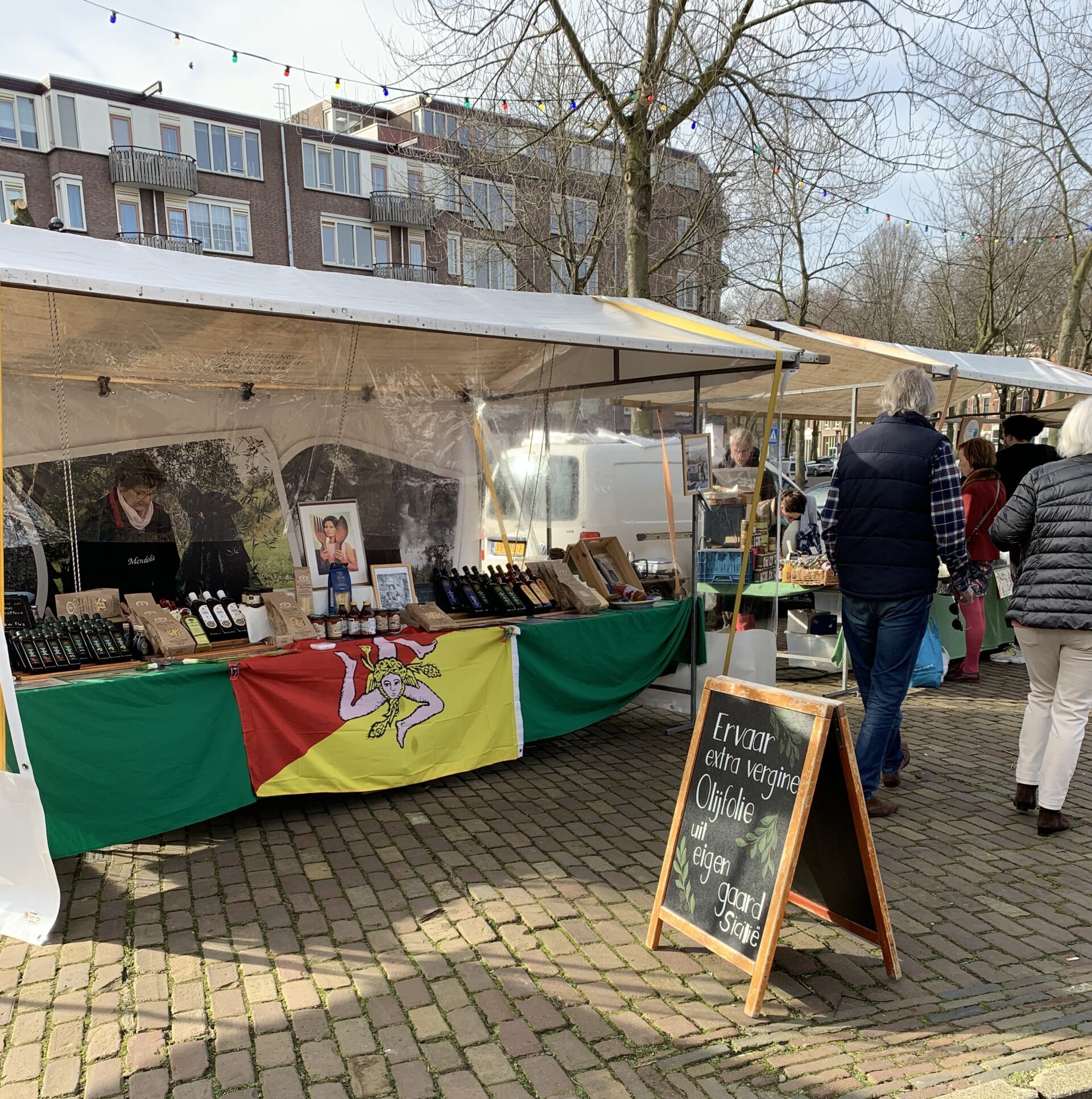
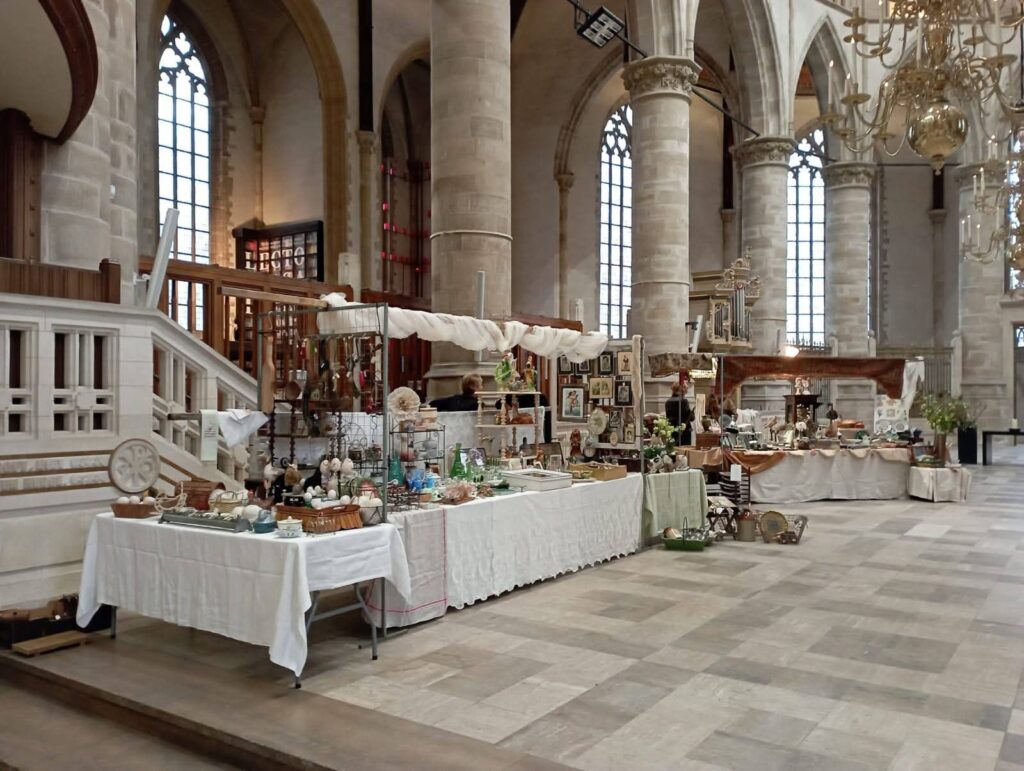
Laurenskerk Flea Market, Rotterdam
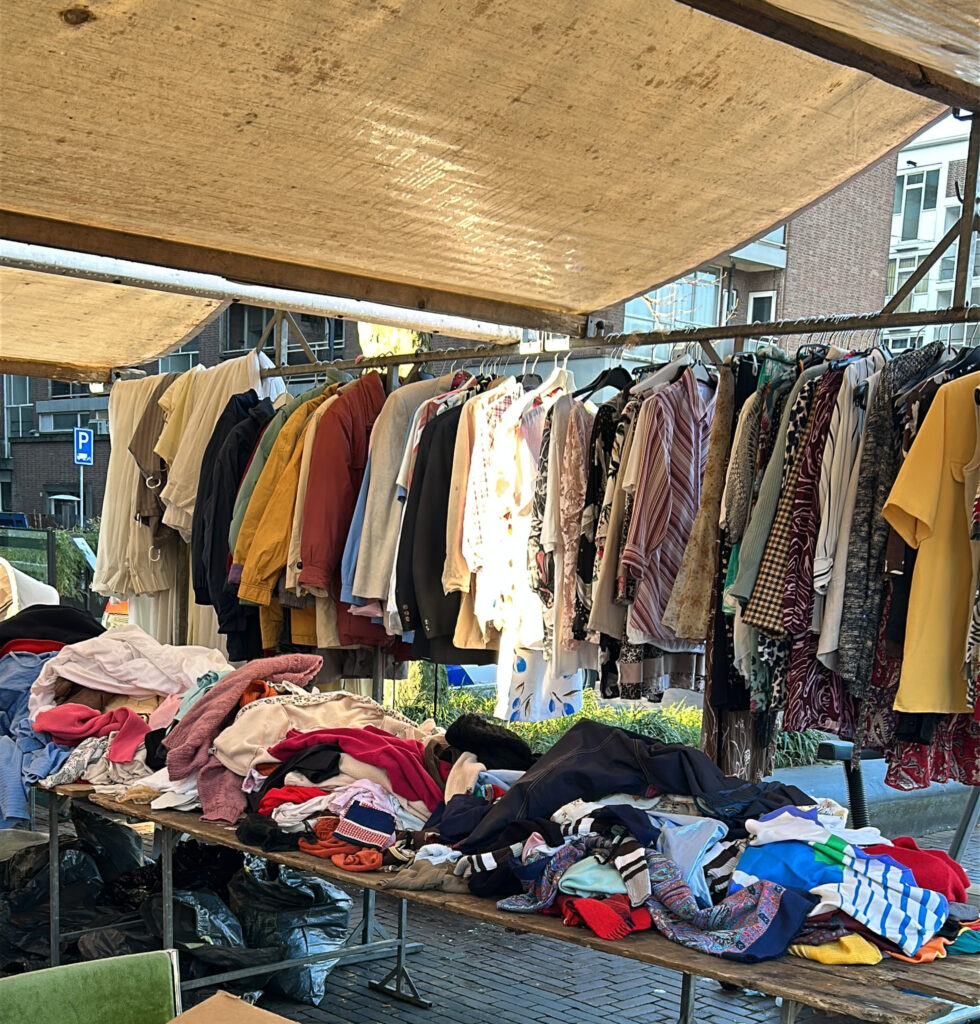
Rotterdam Flea Market
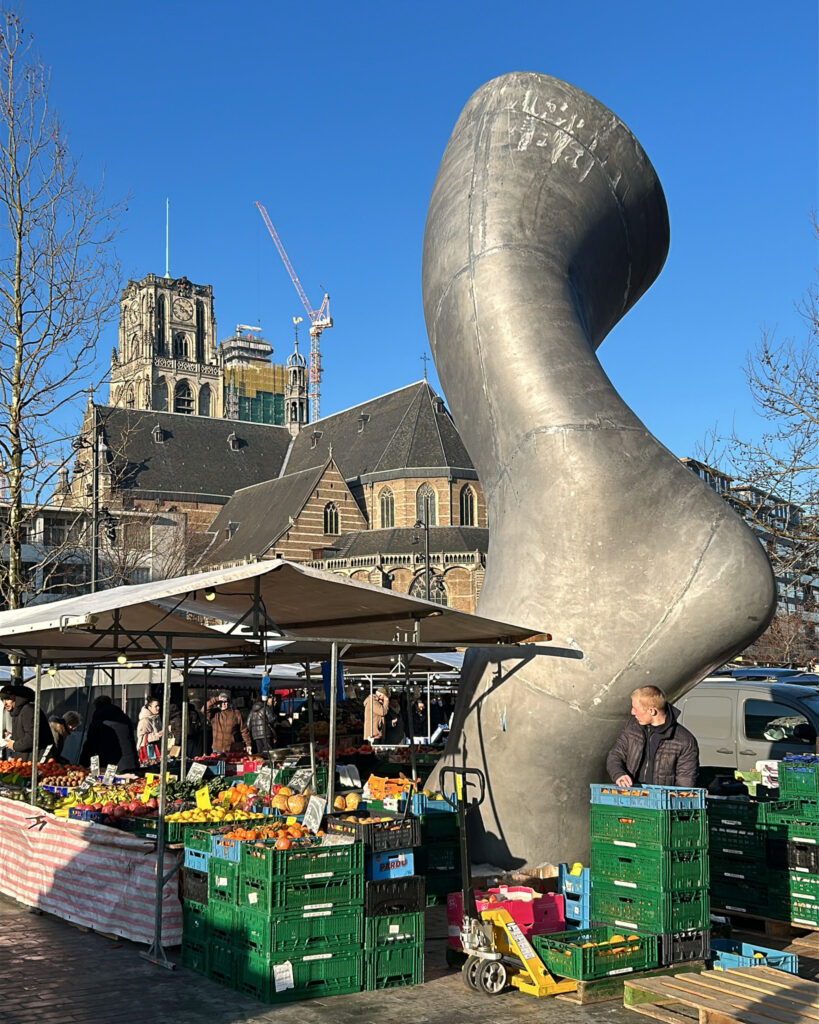
Binnenrotte Market, Rotterdam
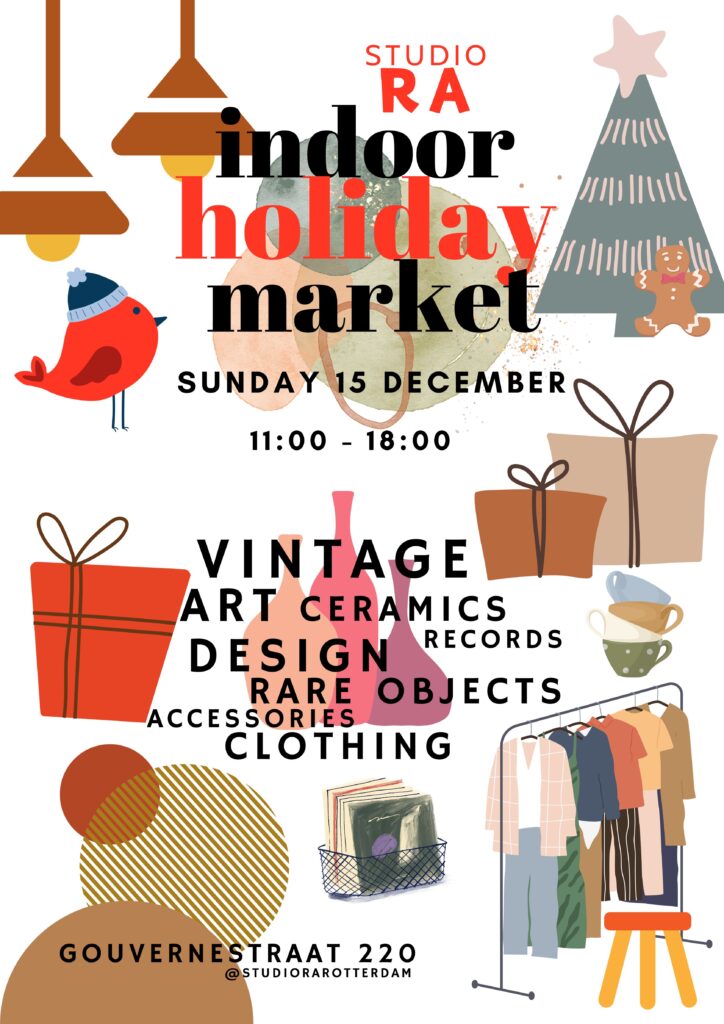
Studio RA Vintage Markets, Rotterdam
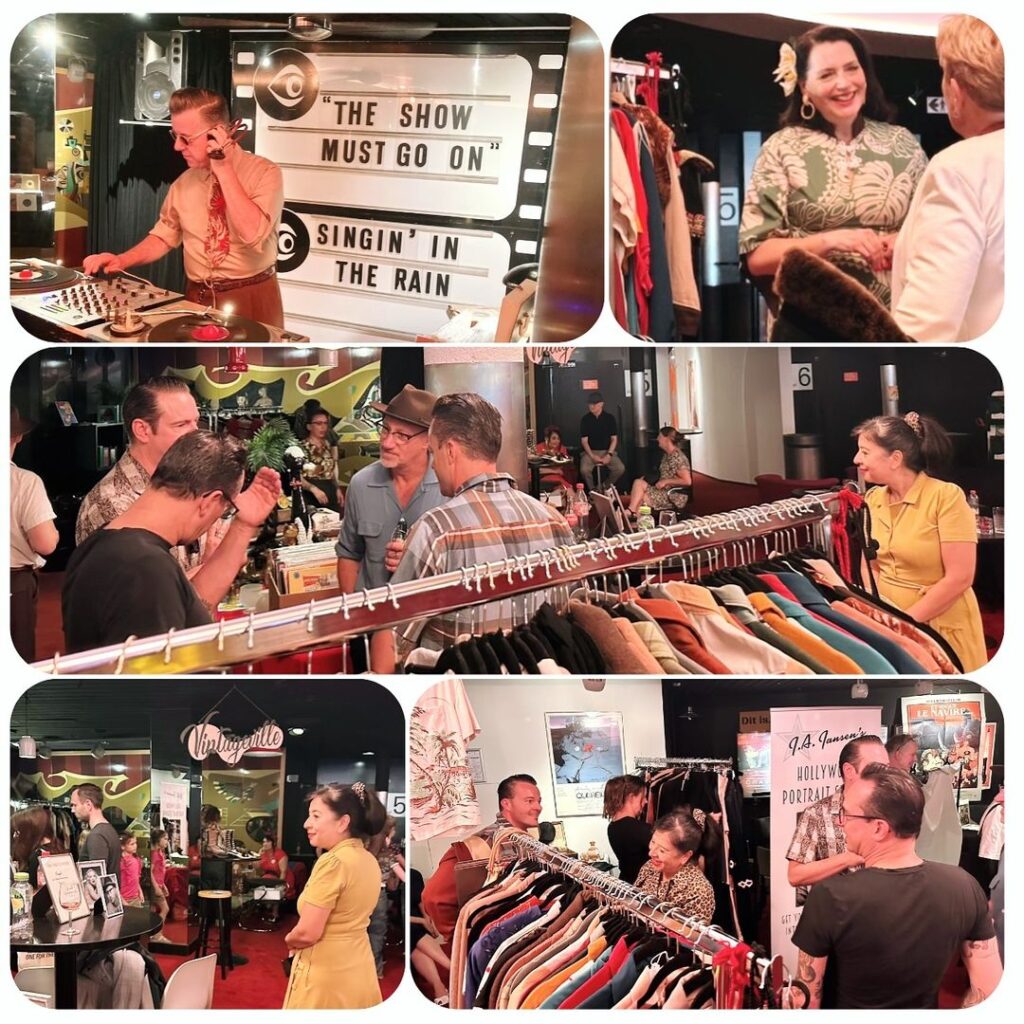
VintageVille, Rotterdam
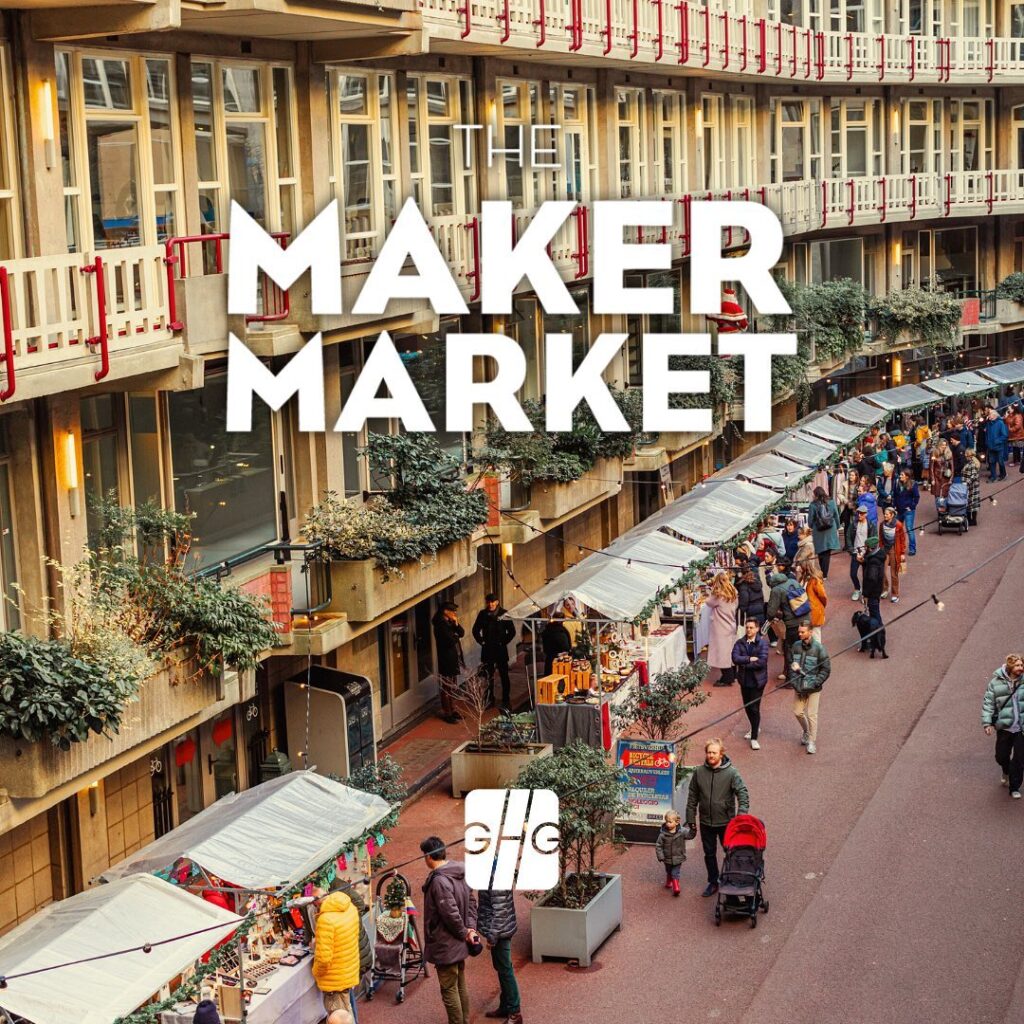
The Maker Market, Rotterdam
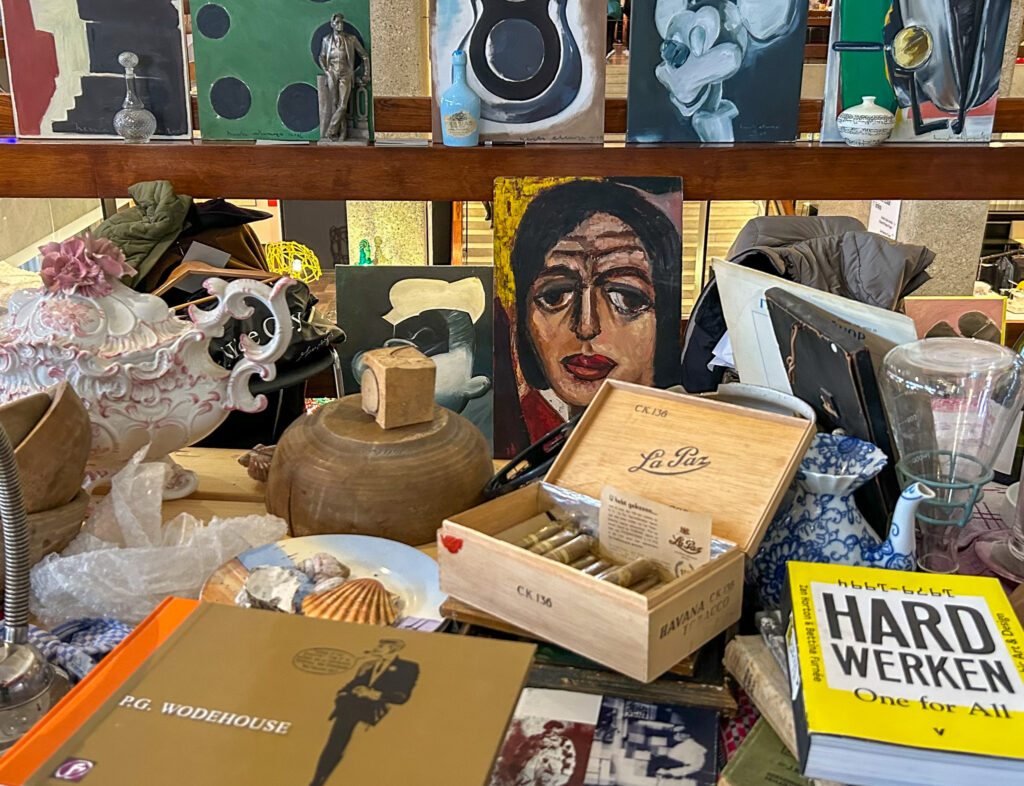
Waluw Vintage Market – Groothandelsgebouw, Rotterdam
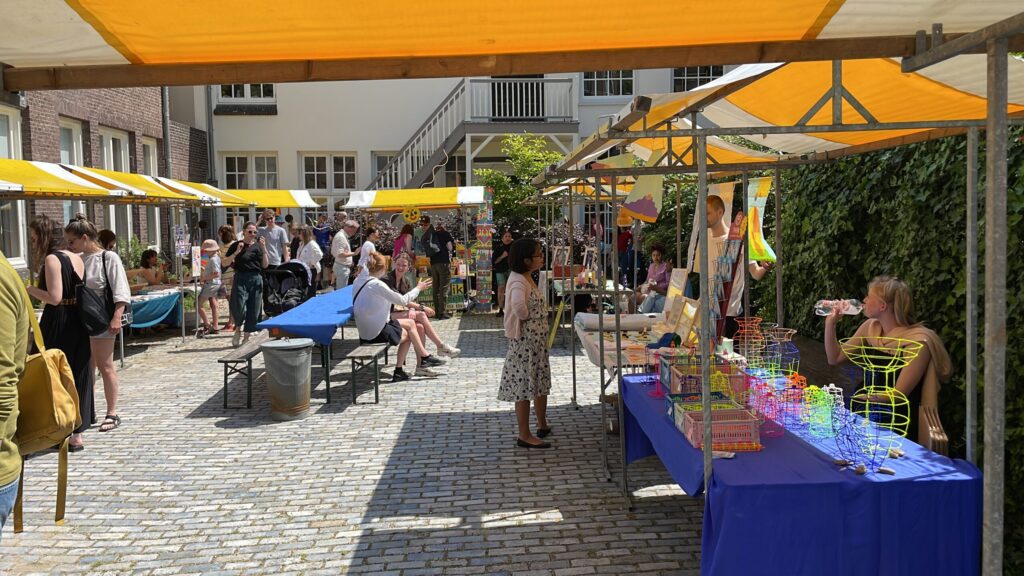
Design Market Delfshaven, Rotterdam
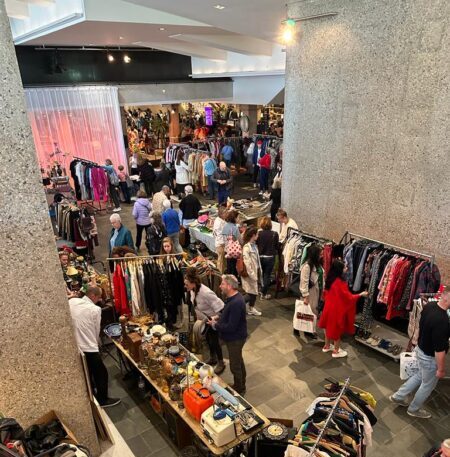
Waluw Vintage Market, Rotterdam
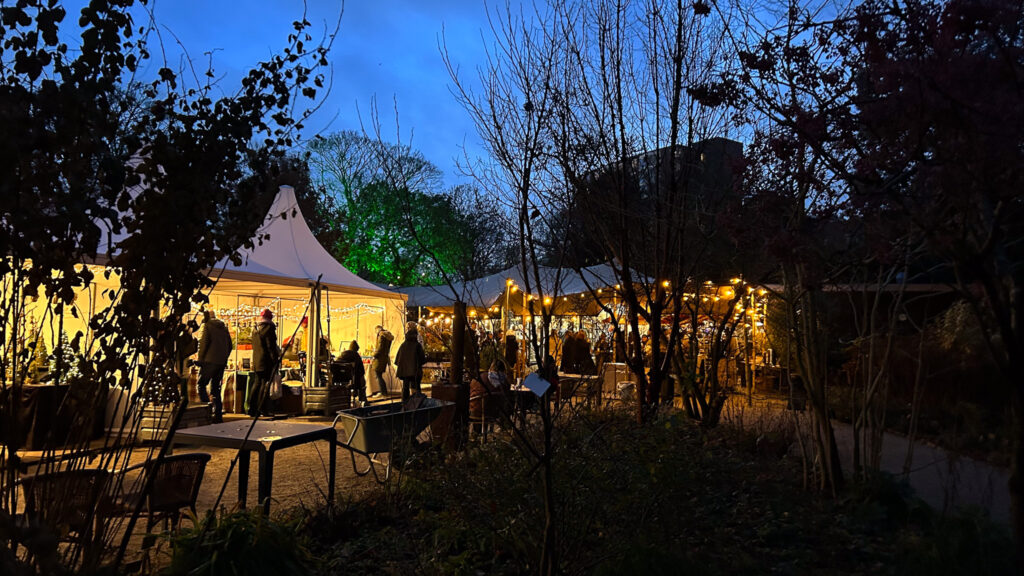
Green Christmas Market at Trompenburg Arboretum in Rotterdam
